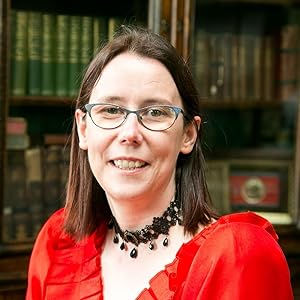Made in America by Bill Bryson
- authorvalpenny
- Jul 30, 2022
- 2 min read
I recently re-read his "Made in America" The text is an entertaining compendium of possible and less possible word origins.
The Blurb
Bill Bryson turns away from travelling the highways and byways of middle America, so hilariously depicted in his bestselling The Lost Continent, The Life and Times of the Thunderbolt Kid and Notes from a Big Country, for a fast, exhilarating ride along the Route 66 of American language and popular culture.
In Made in America, Bryson tells the story of how American arose out of the English language, and along the way, de-mythologizes his native land - explaining how a dusty desert hamlet with neither woods nor holly became Hollywood, how the Wild West wasn’t won, why Americans say ‘lootenant’ and ‘Toosday’, how they were eating junk food long before the word itself was cooked up - as well as exposing the true origins of the words G-string, blockbuster, poker and snafu.

The Review
I recently re-read his "Made in America" The text is an entertaining compendium of possible and less possible word origins. Does "okay'' come from the nickname given to Martin Van Buren, Old Kinderhook? Or from the fact that Andrew Jackson was reported to write "oll korrect''? Or is it from the Greek ollakalla (all good)?
Bryson offers a cogent discussion of sexism in the language, and there's a lot of orthography, etymology, and toponymy. But this isn't just a book about language. It's also a bestiary of American pop culture, many of whose stereotypes Bryson debunks (a back-formation from Buncombe County, North Carolina, of course): Ellis Island, in its original splendor, wasn't half bad; the Puritans enjoyed a good time just like the rest of us; and Ray Kroc had not the inventiveness of the Brothers MacDonald, after all. Bryson tells us a lot we surely never thought about. There is the cost of sending a letter by Postal Express and the reason for the bump on the fuselage of the Boeing 747. "Debugging'' of computers began, we are told, on the day 50 years ago when a moth entered a Navy computer.
There are, however, some facts that are not facts.
Bryson places the Polish-born British writer Joseph Conrad among the group of Americans whose names were changed from awkward foreignness. And, surprisingly for a lexicographer, he indulges in the popular confusion of the 18th-century "long s'' and the modern "f.'' This offering won't replace the popular works by Flexner, much less the majestic Mencken, but the style is engaging and the narrative diverting. An index is appended, but there is no useful list of words and phrases.
If, as Winston Churchill has it, England and America are two countries divided by a common language, here's some disarming help sent by a Yank from the other side of the pond. I very much enjoyed this book: it was a terrific combination of fact and humour. I highly recommend it.

The Author
Bill Bryson is a best-selling American author of humorous books on travel, as well as books on the English language and science. I have read and enjoyed many of his books. Born in America, he was a resident of United Kingdom for most of his adult life before returning to the USA in 1995. In 2003 Bryson moved back to Britain, and lives in Norfolk, England.







Comments